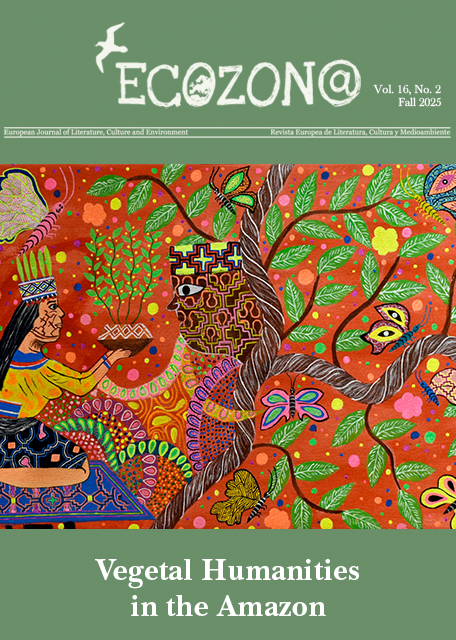With or Without Oil. "Nordsjøen" and the Persistence of Norwegian Exceptionalism
DOI:
https://doi.org/10.37536/ECOZONA.2025.16.2.5186Abstract
Within the catastrophe genre, films that deal with the environment are a fertile ground for the production of arguments about the Anthropocene. In Nordsjøen [The Burning Sea] (2021), a massive oil spill is an opportunity to lay out a perspective of Norway and its relationship with fossil fuels. This article shows how, through an exercise of effacing and erasures, the film bends three basic rules of the catastrophe genre to conceive a society with problems but without conflicts: the disappearance of the struggle between “good” and “evil”, the elimination of economic interests, and the minimization of human error. Without enemies, greed, or malevolence to fight against, the heroes reveal themselves in the film in the production of what I define a “Norwegian exceptionalism,” a worldview with two basic tenets. One is that of a society without struggles, guaranteeing well-being and extending its benevolent influence beyond its borders and to the entire planet. The other, associated with it, is the presentation of dependence on oil exploitation as a sin of an era that must be left behind in order to recover a nostalgic version of pre-oil boom Norway. In this perspective, nature assumes a moral character, warning humans about the effects of fossil fuels. This warning opens the doors to an specific transition towards renewable energies, reifying the material and discursive exploitive relationships that make extractivism the dominant form of interaction with non-human nature.
Downloads
Downloads
Veröffentlicht
Ausgabe
Rubrik
Lizenz
Authors who publish with this journal agree to the following terms:
a) Authors retain copyright and grant the journal right of first publication with the work simultaneously licensed under a Creative Commons Attribution License that allows others to share the work with an acknowledgement of the work's authorship and initial publication in this journal (CC BY-NC for articles and CC BY-NC-ND for creative work, unless author requests otherwise.
b) Authors are able to enter into separate, additional contractual arrangements for the non-exclusive distribution of the journal's published version of the work (e.g., post it to an institutional repository or publish it in a book), with an acknowledgement of its initial publication in this journal.
c) Authors are permitted and encouraged to post their work online (e.g., in institutional repositories or on their website) prior to and during the submission process, as it can lead to productive exchanges, as well as earlier and greater citation of published work (See The Effect of Open Access).










